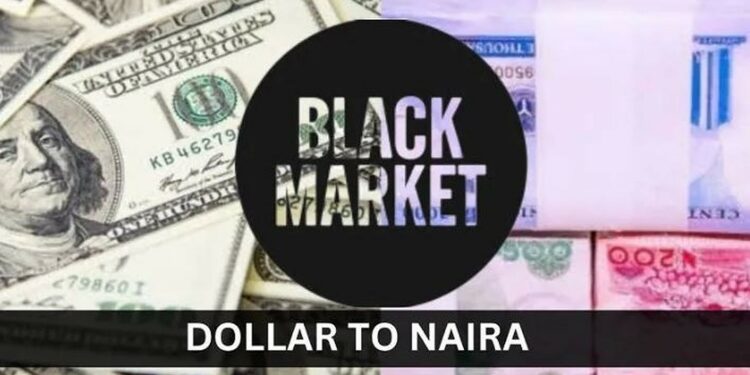What is the dollar to naira black market exchange rate? See the black market dollar to naira exchange rate today below. You can swap your dollar for naira at these rates.
Newsone Nigeria has obtained the official naira black market exchange rate in Nigeria today including the Black Market rates, Bureau De Change (BDC), and CBN rates. Please note that the exchange rate is subject to hourly fluctuations influenced by the supply and demand of dollars in the market. As of now, you can purchase 1 dollar at a certain rate now, however, it’s important to keep in mind that the rate can shift (either upwards or downwards) within hours.
What is the dollar to naira black market exchange rate?
How does the black market dollar-to-naira exchange rate compare to the official rate?
The official exchange rate of the US dollar to the Nigerian naira, as of today, 20 April 2024, is ₦ 1,161 per US dollar.
| Date | Currency | Buying(NGN) | Central(NGN) | Selling(NGN) |
|---|---|---|---|---|
| 4/18/2024 | US DOLLAR | 1160.131 | 1160.631 | 1161.131 |
| 4/18/2024 | POUNDS STERLING | 1444.9432 | 1445.5659 | 1446.1887 |
| 4/18/2024 | EURO | 1237.0477 | 1237.5808 | 1238.114 |
| 4/18/2024 | SWISS FRANC | 1272.3525 | 1272.9009 | 1273.4492 |
| 4/18/2024 | YEN | 7.5036 | 7.5068 | 7.5101 |
| 4/18/2024 | CFA | 1.8402 | 1.8502 | 1.8602 |
| 4/18/2024 | WAUA | 1507.1587 | 1507.8082 | 1508.4578 |
| 4/18/2024 | RIYAL | 309.2611 | 309.3943 | 309.5276 |
| 4/18/2024 | DANISH KRONA | 165.7519 | 165.8234 | 165.8948 |
| 4/18/2024 | SDR | 1525.5723 | 1526.2298 | 1526.8873 |
This is the rate that the CBN uses for its transactions and interventions in the foreign exchange market. The official rate is also the basis for the exchange rates of other foreign currencies, such as the euro, the pound sterling, and the Chinese yuan.
The difference between the black market rate and the official rate is called the parallel market premium. The parallel market premium indicates the degree of divergence between the official and unofficial markets, and reflects the level of confidence in the naira and the CBN’s policies.
Factors Influencing Foreign Exchange Rates
Here are some of the causes of the dwindling dollar-to-naira exchange rate.
Inflation Rates: It is well known that inflation directly impacts black market exchange rates. If the Nigerian economy can be stabilized and inflation is controlled, the naira will benefit; however, if the naira continues to fall, it may indicate that food and other necessities are becoming more expensive daily.
Interest Rates: Another tool to keep an eye on is interest rates. If the interest rate at which banks lend money rises, it would harm the economy, causing it to contract and, as a result, the value of the naira to fall.
Government Debt: National debt can impact investor confidence and, as a result, the influx of funds into the economy. If inflows are high, the naira exchange rate will rise in favour of the naira.
Speculators: Speculators frequently impact the naira-to-dollar exchange rate. They stockpile money in anticipation of a gain, causing the naira to plummet even lower.
Conditions of Trade: Favorable trade terms will increase the value of the naira to the dollar, although Nigeria is currently experiencing a trade deficit. Everything comes from China, India, and the majority of Asian countries.
Disclaimer: NEWSONE NIGERIA does not set or determine forex rates. The official NAFEX rates are obtained from the website of the FMDQOTC. Parallel market rates (black market rates) are obtained from various sources including online media outlets. The rates you buy or sell forex may be different from what is captured in this article.






